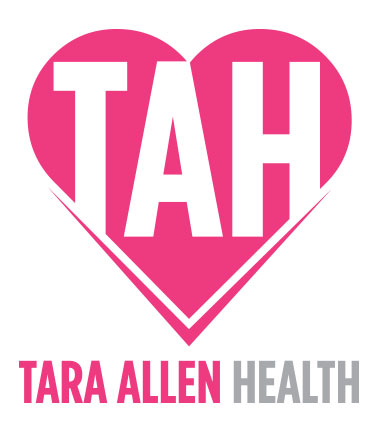Don’t worry, I'm saving the April Fools jokes for Instagram and my family. I’d never prank you about peri or menopause. That stuff’s already chaotic enough.
Hormones going rogue? That’s real.
Waking up at 3am wondering if your metabolism ghosted you? Also real.
So today, no jokes ... just gold.
Let’s break down what’s actually happening in your body (and what you can do to take your power back). Perimenopause and menopause isn’t the problem. But it is revealing everything your hormones used to hide.
Let’s talk about the midlife health mystery no one prepared us for:
You wake up puffy.
You feel more anxious than usual.
Your jeans fit weird.
You’re snappy for no reason.
You can’t remember why you walked into a room, but you can remember that you’ve already had it with everyone.
So you go to the doctor.
You get bloodwork.
They tell you, “Your labs are normal. Maybe try meditation or weight loss?”
Cue internal screaming.
Perimenopause / menopause (the former I have personal experience with myself!) can feel like chaos. Perimenopause is that in-between hormonal zone where your body is shifting ... but not consistently. Estrogen is erratic. Progesterone is MIA. Some days you feel great. Other days you're crying into your sleepy time tea.
Meanwhile, your mitochondria are like: “Ma’am, are we doing cardio or collapsing?”
And the medical world? It’s kind of collectively like: “Huh. That’s weird.”
What’s actually happening with your hormones? (skip if it starts feeling like biology class)
Perimenopause = hormone chaos. Estrogen and progesterone don’t just drop ... they fluctuate wildly. You can go from normal levels to postmenopausal lows and back again… in the same week. That’s why some days you feel amazing, and others you feel like a puffy rage monster in a brain fog.
Progesterone drops first. It’s your calming, balancing hormone -- and when it goes, anxiety, irritability, sleep issues, and PMS-like symptoms take the wheel. This is often the first sign of perimenopause.
Estrogen becomes unpredictable. Sometimes too low (cue hot flashes, dryness, mood swings), sometimes too high (hello bloating, heavy periods, breast tenderness). The rollercoaster makes your brain and body feel very confused.
Testosterone quietly declines. It doesn’t crash like estrogen or progesterone, but it steadily drops, which impacts muscle mass, libido, confidence, motivation, and strength. You may not notice it right away, but over time you feel… flatter. Less drive. Less “you.”
Menopause = hormone flatline. Once you’ve gone 12 months without a period, estrogen and progesterone reach consistently low levels. Your body can function without them, but not optimally unless you support your system.
Post-menopause, your adrenal glands and fat tissue take over. They produce small amounts of estrogen, progesterone, and testosterone. But if you're stressed, inflamed, or depleted? That backup system gets overwhelmed fast. (This is one reason managing stress and building resilience becomes non-negotiable.)
I love analogies -- Think of estrogen, progesterone, and testosterone like a group of expert chefs running your body’s kitchen. In perimenopause, the chefs start showing up late, forgetting the recipes, and throwing cayenne into the pancake batter. In menopause, they retire ... and now the interns (your adrenals and fat cells) are trying to keep the restaurant open with half the ingredients and no supervision. It’s possible, but you’ll need better systems, smarter nutrition, and a lot more support.
Here’s the real plot twist:
Perimenopause and menopause are often blamed for too much (“It’s just your hormones. Good luck!”) AND not blamed for enough (“Your labs are fine. It’s probably stress or aging.”). But the truth is that yes, your hormones are shifting. But also… your youthful hormones were masking metabolic chaos for years:
Undereating.
Over-stressing.
Lack of muscle.
Blood sugar roller coasters.
Sleep deprivation.
Nutrient depletion.
And now? It’s all showing.
What’s actually happening to your mitochondria?
Estrogen drops → energy production drops
Estrogen helps your mitochondria function. With less of it, energy tanks and oxidative stress climbs.
Inflammation creeps in
Hormonal chaos = cellular inflammation = slow repair + slower metabolism
Insulin sensitivity tanks
Your cells stop responding well to carbs, and blood sugar management gets harder
You lose lean mass (and mitochondria with it)
Muscle = mitochondria. Muscle loss = lower metabolic capacity.
Cortisol spikes, but recovery lags
You’re more stressed, more easily depleted, and less resilient.
Sleep suffers → mitochondria suffer
Night wakings = poor recovery = higher inflammation
Your nutrient needs skyrocket
Your cells need more B vitamins, magnesium, antioxidants, protein, and co-factors ... just to function normally.
What actually helps (and what I teach + guide you through in The Metabolic Edge):
Short, metabolism-supportive strength training
Blood sugar balance with protein-forward, satisfying meals
Nervous system regulation (real tools that work in mom-life and other life chaos)
Strategic supplements that support mitochondrial + hormonal health
Smarter recovery (because rest is now mandatory, not optional)
Real-life strategies that work in 2025, not 1998
Cat's out of the bag. Coming soon: The Metabolic Edge
This is exactly why I created The Metabolic Edge -- my brand-new signature membership where we rebuild your metabolism, energy, and resilience from the root up.
It’s for women in. their 30s, 40s, 50s and beyond navigating perimenopause, menopause, body composition and / or health struggles who want real strength, better brain power, more joy, and less dreaming of naps
Doors open VERY SOON. Keep an eye out.
Because you’re not broken. You’re just out of cellular alignment ... and we can fix that.
Stay tuned. This is going to change everything.
XO,
Tara
